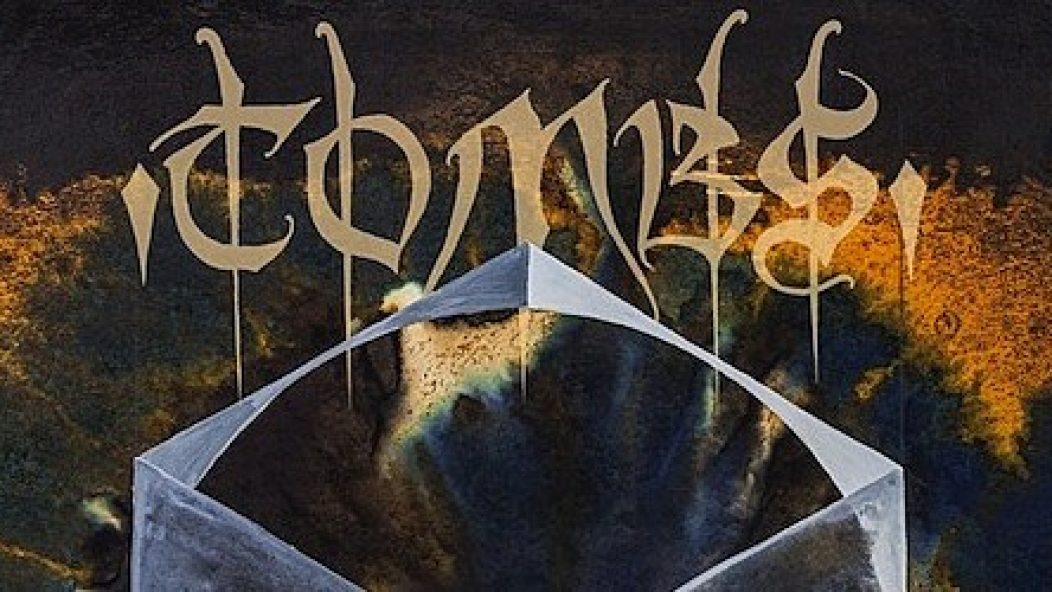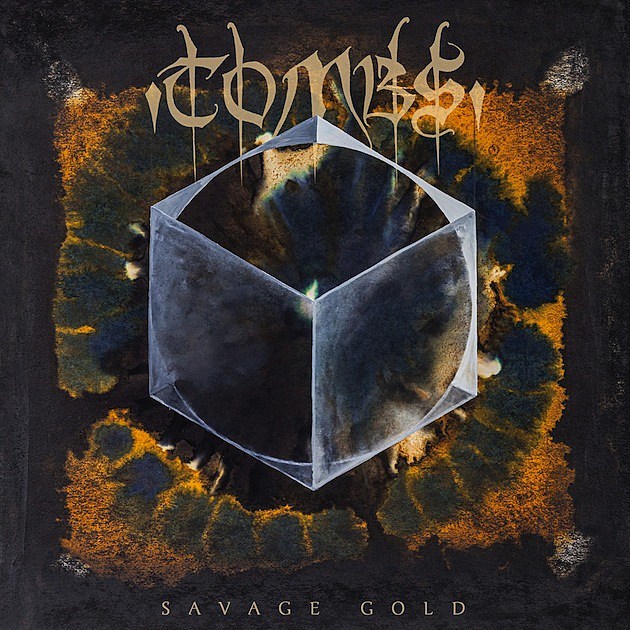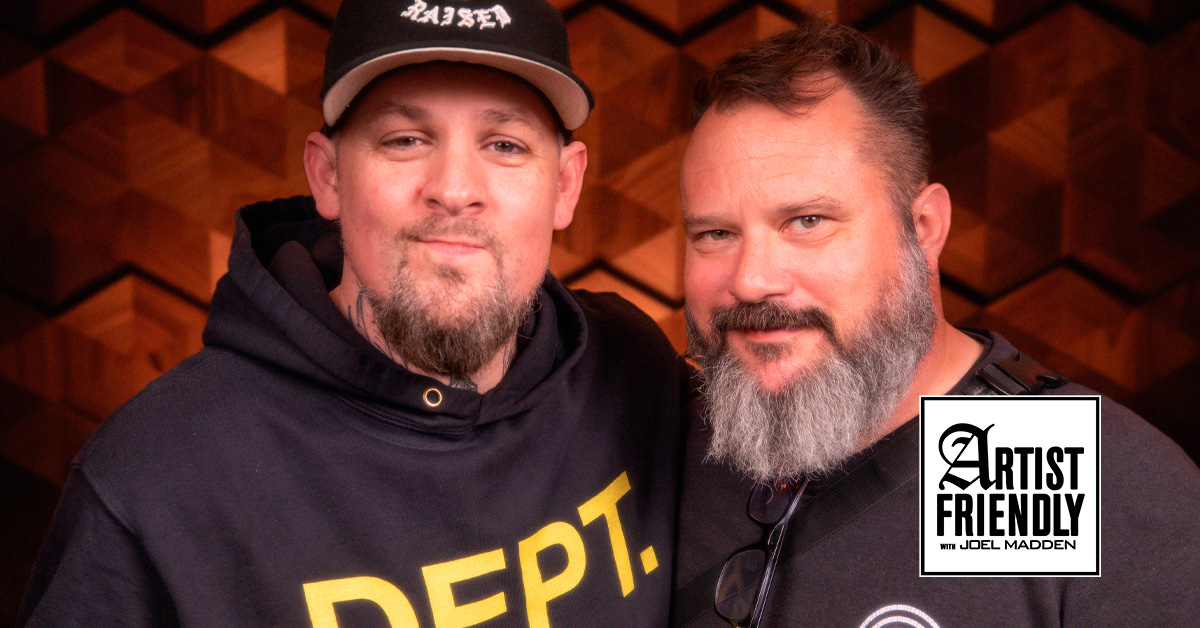
Tombs' Mike Hill and "Savage Gold"

…
…
Tombs are honest. Unlike many style hybrid bands, Tombs don’t try on styles to see what fits, they don’t strain to be novel in a time when everything in recorded history is easily found and applied as a point of comparison. If it didn’t fit, it didn’t make Savage Gold, the band’s third full-length to be released by Relapse on June 10. It wasn’t true, it wasn’t Tombs. You may dislike what you hear, and the music doesn’t try to manipulate you into reconsidering your opinion. In the end, Tombs are what they play. Mike Hill is who he says he is. No qualifications, no guards, no illusions of perfection, no pretense, no defensiveness.
“I don’t like to blame other people for my failures,” Mike Hill writes in an email, “If I fuck up, it’s my own fault. If something goes wrong, I have to analyze what decisions I’ve made to put me in that consciousness. A number of years ago I had someone in my life that was always looking outward with respects to the hardships he was experiencing. It was always someone else’s fault, never his. I feel like we are all responsible for our own destinies.”
That responsibility and work ethic carries over to Savage Gold. Tombs, at this stage of their career, had every reason to coast on the success provided by the acclaimed Path of Totality. They could’ve re-recorded that record for the rest of their lives. However, the Tombs way wasn’t to rehash 2011. After all, bassist Ben Brand, formerly of Woe, and Flourishing’s guitarist Garrett Bussanick brought new sounds and influences to the group. Plus, Hill has never been about bowing to expectation.
“The only pressure is the pressure I place on myself to produce something that I find compelling,” Hill explains. “Of course, I want people to enjoy the music, but I never consider the listener or what they want out of the experience. To do that would seem a compromise and I don’t believe in compromising the creative statement.” This, he admits, has always guided his vision. So, while Tombs’ membership and popularity changed, the approach to Savage Gold didn’t. “I have to say with all confidence that the process is exactly the same. I hang out in a room with a guitar and bang out riffs, write in my book, and work it out with the band in the practice space.”
Few frontmen and composers would include that last part. Savage Gold does sound like the product of a collective, though. Hill, Brand, Bussanick, and drummer Andrew Hernandez have put in the effort to hammer out any kinks. “This time around, we had a lot of time to work on the material,” Hill says. “We wrote a lot but also discarded a lot.” What’s left is just muscle. There’s no flash, no solos, no begging you to be impressed. That said, Savage Gold isn’t a workman’s slog. Tombs pique interest subtly. A section of “Portraits” has Brand busily plucking a post-punk counter to Hill and Bussanick’s blackened riffs. Then, Brand melts into the background as a distorted, Unsane throb. You don’t catch the transition on the first listen, but you feel the effect. These easter eggs appear all over Savage Gold. They’re built on trust.
Of course, it helps when you have a trustworthy set of outside eyes and—in this case, producer Erik Rutan. Hill agrees, “Working with Rutan was the best decision that we could have made with respect to producers. In the past, we were pretty much left to our own devices in the studio. We cranked up the reverb pedals and let it rip, like we were playing live. We needed a specialist like Rutan to guide us down the path and refine our ideas. Rutan and I spent a lot of time discussing what the record should sound like, what we wanted to achieve.”
One achievement is “Deathripper.” It’s Savage Gold‘s tentpole, sitting in the middle of two sides that mix USBM, death metal, and sludge. “Deathripper” is patient, building steadily. Brand and Hernandez lock into a Killing Joke/Amebix-esque forward momentum. Bussanick and Hill vary a simple melody, using repetition in the way a hypnotist swings a pocket watch. Hill’s vocals drone like a monk speaking into a megaphone. Rutan gives every element space, heightening and lowering tension by providing occasional atmospheric support. Thanks to the spread, when the song explodes it’s downright apocalyptic. Hill has found his compelling moment—it’s pure emotion, and he runs that well dry. It must have been exhausting to make.
“Music is always a catharsis for me,” Hill responds. “It’s one of the things that helps me avoid the pitfalls of living in a modern society. The darkness in our music is a reflection of the impressions I get from the world and some bleak times that I’ve experienced at different parts of my life. It passes through me and I infuse it into our songs. I don’t want to hold on to these feelings for too long.” But, in a way, “Deathripper” was a long time coming. “I actually wrote the lyrics to ‘Deathripper’ about 15 years ago. I pulled that song directly out of one of my journals and placed it into the song. I trip out on that. It fit perfectly.”
15 years ago, you would’ve found Mike Hill in Anodyne, a forward-thinking hardcore/metalcore band musicians loved but the general public avoided. It was a theme Hill unpacked on his podcast, Everything Went Black, with another group that undeservedly flew under the radar. “Recently I had Dave McClelland, one of the original guitarists in Craw, on the podcast. I related to him on the experience of touring in a band that most people didn’t get. It can make or break a band. I’ve seen both things happen; I’ve observed people crumble because they don’t immediately get the approval they seek and I’ve seen people who inherently believe in what they do despite the relative indifference from a crowd. Dave is one of those guys that believed in what he was doing and I respect that.”
Though it evaded him during stints in Anodyne and Lickgoldensky, Mike Hill has finally received approval and he believes in what he’s doing. So, is he satisfied? “It’s always a labor but what else is there for me to do? I can’t stop; I’ve gone too far to turn back, so the work is just part of the experience, Jack. Everything that I’ve ever attempted has been hard: I’m not particularly talented or smart, but my work ethic pulls me through. I don’t ever see myself becoming ‘satisfied.’ ”
…











